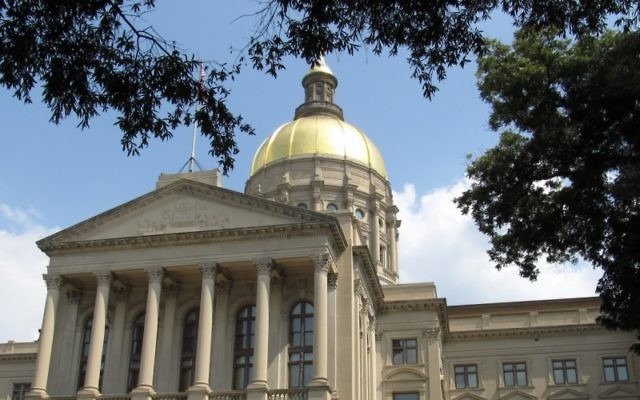Ga. House OKs Tax Credit Increase
The Senate now gets legislation to raise the $58 million cap on a program vital to Jewish day schools.
The cap on an education tax credit benefiting Jewish day schools and preschools would gradually rise to $100 million under legislation that passed the Georgia House on Tuesday, Feb. 28.
House Bill 217, introduced by Rep. John Carson (R-Marietta), would raise the $58 million cap on the tax credit for donations to student scholarship organizations to $65 million for 2018, then continue boosting it by 10 percent a year until the cap reached $100 million, which would be 2023.
The House voted 111-62 to send the bill to the Senate for consideration.
Student scholarship organizations, such as the ALEF Fund, pass the donations on to private schools to be distributed to families as scholarships. Donors get a 100 percent credit on their Georgia income taxes for every dollar given to SSOs.
The program has proved so popular that Georgians seek more than the available tax credit money on the first day the Department of Revenue accepts applications each year.
The House Ways & Means Committee approved the bill Friday, Feb. 24, after amending Carson’s original measure, which would have raised the cap to $150 million for 2018 and kept increasing it until it reached $180 million for 2022.
Carson’s bill is one of at least three measures proposed in response to the annual oversubscription to the tax credit. Rep. Sam Teasley (R-Marietta) proposed in H.B. 236 to raise the cap to $150 million in 2018, then add $7.5 million per year, but, unlike H.B. 217, the Teasley legislation didn’t have a stopping point for the increases.
Teasley also offered an alternative approach in H.B. 414. It would not raise the $58 million cap but specifies that any credits that are allowable but are not approved by the tax commissioner or funded by the taxpayers will carry over to the next year and be added to the total tax credit pool.
Neither Teasley bill has moved out of committee, however, and Teasley voted for H.B. 217.
With Friday looming as the deadline for legislation to pass at least one chamber of the General Assembly to be enacted this year, H.B. 217 appears to be the one hope to raise the cap in 2017.
H.B. 217 also would ease the rush to apply for the credit.
Under the current system, if you don’t get your application in on the first day the Revenue Department accepts them, you won’t get the credit. The Carson bill would treat all applications received in the first 10 days as if they arrived at the same time and, if the applications exceeded the cap, would prorate the credit among all of them.
If any money remained after 10 days, applications would be accepted and counted day by day through Nov. 1.
H.B. 217 also would preserve 75 percent of the annual tax credit for individual donors.




comments